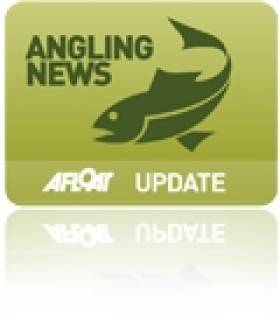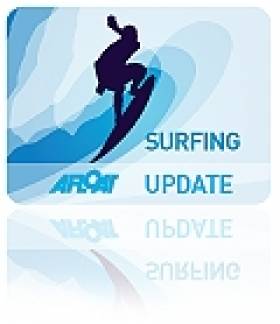Displaying items by tag: Queens University
Inland Fisheries Ireland & Queens University Belfast Share Expertise in Fisheries Research
#fisheries – Inland Fisheries Ireland (IFI) and Queens University Belfast (QUB) jointly sealed a Memorandum of Understanding (MOU) at QUB's Medical Biological Centre earlier this week, on Wednesday 11th of March 2015, expressing their commitment to a continued rich and productive liaison in research and education.
Over a number of years, scientists from QUB and Inland Fisheries Ireland have worked in collaboration to produce high quality research covering an extraordinary range of projects, species and topics. Current areas of joint research include: fish population genetics; aquatic invasive species; and fish telemetry.
Speaking at the announcement, IFI's Head of Research, Dr Cathal Gallagher commented: "IFI and QUB look forward to building on our existing relationship to produce the highest quality research outputs and publications to support the conservation and management on the inland fisheries resource."
The organisations are also seeking to collaborate in encouraging and supporting the development of the next generation of fisheries scientists and technologists.
Dr Cathal Gallagher, continued: "I am confident that the memorandum of understanding signed here today will act as an impetus to move forward with future research collaboration to support our shared goals. I see this collaboration as vital in supporting the development and education of the next generation of scientists into whose hands the future of this resource will be placed.
"I'm also extremely impressed by the expertise and quality of the joint research currently being undertaken and I look forward with anticipation to reviewing the outputs of these projects.'
Professor Christine Maggs, Head of School, School of Biological Sciences, Queen's University Belfast, welcomed the announcement, saying "We are delighted that there is now formal recognition of the long and productive collaboration between QUB and IFI.
"The School's expertise in fish genetics, fish biology and aquatic ecology has been successfully applied to answering significant research questions for the IFI for more than a decade."
Sligo IT Takes Student Surf Title
Sligo IT fought off tough competition to take the top spot at the 2011 Irish Student National Surf Championships in Portrush last weekend.
Poor conditions on the Saturday morning forced a postponed start in the afternoon but Sligo raced to the front from the get go, winning the first ever stand up paddle.
UUC's Rory McNeary narrowly defeated Sligo's Christian McLeod in the men's longboard final, but the lead was regained by Ryan McEnroe and Nicole Schiffer in the men's and women's bodyboard finals.
And Ronan Oertzen – who also won the prize for the highest two-wave total - capped things off with a strong performance in the men's open to seal the title.
Meanwhile in the women's open, Easkey Britton of UUC took her third title at the championships, topping Queens University's Clare Stephens and Niamh Marie Smyth.






























































